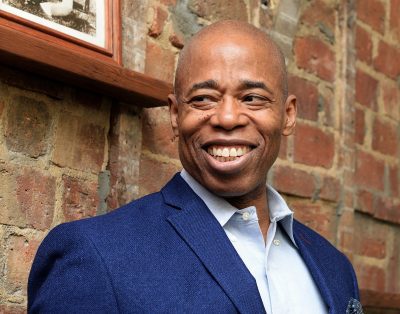Serial, Episode 3: The One Where We Realize Why Nobody Likes Serial Anymore
America is sick! Americans are the worst!
Many of you, like me, are retreating back to your metropolis of choice after a forced slog into the suburban wilds of your youth, so you probably feel me on the above and honestly I probably don’t need to explain any further. Did you get deep existential angst and a very real sense of your own mortality and the futility of everything you’ve ever done after dinner at a Chili’s? Case closed.
But really what I’m talking about is this. Christmas Eve brought us episode three of season two of Serial, 2014’s most talked-about podcast. Just in February of this year, the New York Times wrote that the show was “by far the biggest hit in the relatively brief history of podcasts” and “a phenomenal success.” But if, one holiday evening this year, one of your relatives leaned in to breathlessly tell you about a compelling true-life story on which they’re hooked, it was probably Netflix’s Making a Murderer. As of this writing, it brings up more than 40 million Google results: Chicago Tribune articles about the current status of the real-life cases at its center, People magazine articles about questions the show raises, and general explainers/reviews from Vox.com (where else!). One of the top Google results for ‘Serial Season 2’ is an E! Online article under the headline, “Sarah Koenig Doesn’t Think Serial Fans Are Going to be Excited by Serial Season 2.” In the end, after the success of The Jinx, Fargo, American Crime, and more, the media lesson of Serial might not be that people like Serial, or even podcasts, but that people are obsessed with true crime. Because we like to hear lurid stories about murders, from the murderer’s perspective, which is kind of the logical endpoint of our TV antihero obsession (several of which follow literal murderers!). That is not what Serial season 2 is about.
What it is about is the continuing adventures of Bowe Bergdahl, who we get further proof this week could have his life story turned into an adventure for Mr. Bean or Mr. Magoo with just a few very minor changes (some titles: GI Bean; Mr. Magoo on Patrol). On the first episode, we learned that Bergdahl crept off of his base to test his mettle in the wild and heroically draw attention to the dangerous conditions of his brothers, only to immediately get lost in the dark before being captured by the Taliban. This week, we learned that after enduring months and months of brutal torture that test the limits of human endurance, he managed to organize an inspiring escape from a mountain fortress using only an old nail and a key dropped by a child. He shimmied out of a window 15 feet above the ground and set off, only to . . . get lost in the dark, and step off of a cliff. He landed on his left side, injuring himself so badly that he’s only able to move by “crawling along on a combination of elbows and knees or on his butt,” in the words of Sarah Koenig. When he was recaptured by the Taliban after some indeterminate number of days (he says eight or nine, but the Taliban said two), they barely even punished him, as he looked so pathetically beaten up already by his own escape attempt that it hardly seemed sporting—to the Taliban. Wait until they ask him to bake a cake for their rich aunt!
In all seriousness, this episode does a very good job of painting a picture of the kind of hardship Bergdahl endured during the first of his five years as a captive of the Taliban. He was tied to a bed, spread-eagled, for months. He was the plaything of bored fighters who’d point their guns at him, or shave his beard into funny shapes. He was forced to record Taliban propaganda videos. He was beaten, at one point by a child, for reasons he can’t understand. Again, we hear multiple times about his shitting, apparently a focus of this season (he often had diarrhea). These are clichés, but he was more or less treated worse than a dog, or worse—tied in room, fed once or twice a day, and otherwise left to wallow in his own filth.
There’s an impressionistic quality to this episode; Bergdahl’s memories of months and months that passed by without much change—but with an incredibly high amount of stress—are understandably fragmented. To add a few more layers, we’re hearing edited versions of his conversations with Mark Boal, which weren’t really focused on getting precise journalistic details, but an emotional truth. It can be a bit confusing at times–Bergdahl’s in one place, then another, looked after by a variety of young and old people of varying levels of kindness, without much sense.
But, then, that’s probably what it was like to live through, as well.
Serial is off next week for New Year’s, but will return in 2016. You should too, if you want to hear any more about how people shit in Afghanistan!
You might also like 





















